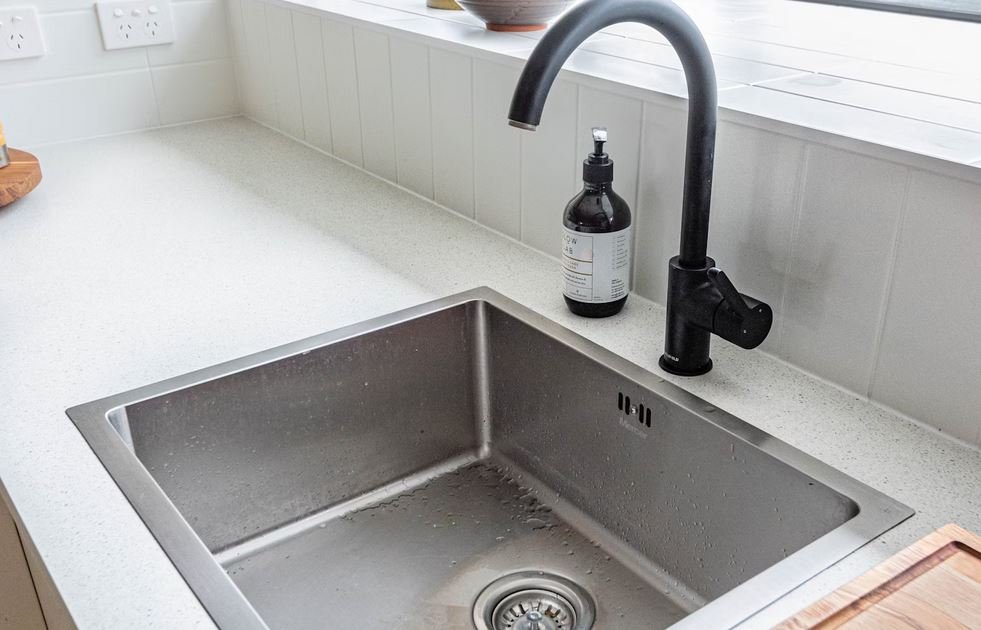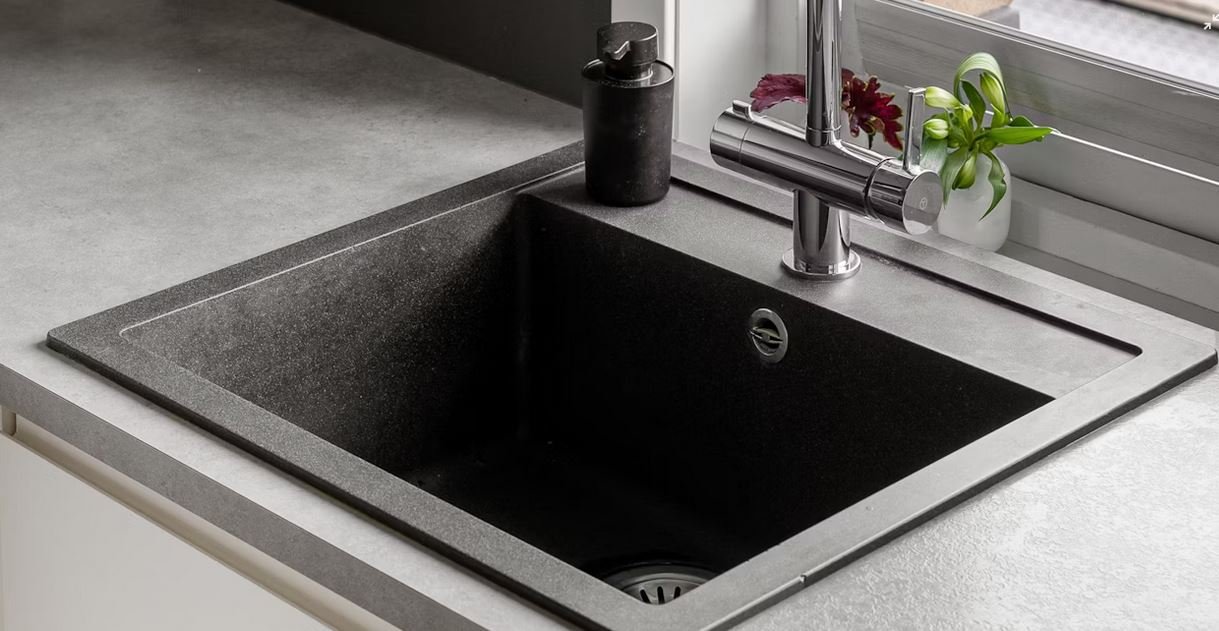Can You Use Toilet Bowl Cleaner In The Sink? (Explained)
We’ve all been there. You’re staring at a grimy sink and, out of the corner of your eye, you spot a bottle of toilet bowl cleaner.
It’s strong. It smells like it could blast away anything. And you’re tempted to just grab it and pour. It feels like an easy fix.
But before you do, you might want to read this post.
Toilet bowl cleaner was designed with a very specific job in mind, and your sink isn’t it. Using it in the sink might work once in a pinch, but it can also backfire in ways you don’t expect.
In this post, we’ll break down if you can use toilet bowl cleaner in the sink, the risks, when you can get away with it, and what you should be using instead.
Is It Safe To Use Toilet Bowl Cleaner In The Sink?
No, it is NOT safe to use toilet bowl cleaner in a sink.
Toilet bowl cleaners are heavy-duty products. They’re full of strong acids, disinfectants, and bleaching agents. Those ingredients are perfect for dissolving hard water stains and germs inside a toilet bowl. They’re not so perfect for a sink or the pipes under it.
Sinks come in all sorts of materials - porcelain, enamel, stainless steel, composite.
Some can handle harsh cleaners a little better than others, but many can’t.
Even if your sink doesn’t show damage right away, the metal parts in the drain or plumbing can take a hit over time. Plus, the fumes are more noticeable when you’re scrubbing a sink because your face is right there, breathing it in.
Also Read: Toilet Bowl Cleaner For Grout
So while you might not see an instant disaster, using toilet bowl cleaner in your sink isn’t considered a safe, long-term habit.
Risks Of Using Toilet Bowl Cleaner In The Sink
The biggest risk of using toilet bowl cleaner in the sink is surface damage.
A lot of sinks have a glossy finish that keeps them looking bright and smooth.
Acidic cleaners can etch that finish, leaving dull spots, streaks, or even small pits. Stainless steel can discolor or lose its shine. Enamel can chip more easily once the coating gets weakened.
The plumbing underneath can also suffer.
Many toilet bowl cleaners contain hydrochloric acid or similar ingredients. These acids can corrode metal pipes, weaken seals, and shorten the life of your plumbing.
That means you might save a few minutes today but pay for repairs later.
Then there’s your health. Because sinks are open and right at counter level, fumes from a strong cleaner are much easier to inhale. You’re also more likely to get splashes on your hands or arms while scrubbing.
Also Read: Can You Use Glass Cleaner On Stainless Steel?
Gloves, goggles, and ventilation are basically required for safe use, but most people skip them for a quick sink cleanup.
All of this adds up to a simple truth: toilet bowl cleaner is risky in a sink. It’s powerful for its intended job but overkill for almost anything else.
When It Might Be Okay (With Caution)
Look, we get it. Sometimes you just need to clean the sink and that toilet cleaner is all you’ve got. So if you’re in a pinch, it can be okay - with a few rules.
Here’s how to use it as safely as possible:
Use a tiny amount, you don’t need to coat the whole sink in it.
Dilute it with water. Always. This makes it less harsh.
Never mix it with other cleaners, especially not bleach and ammonia - it creates toxic gas.
Rinse really well and don’t let it sit on the surface too long.
Ventilate the area. Open a window or turn on a fan.
But again, this should be a once-in-a-while kind of thing. Not your go-to.
Safer Alternatives For Cleaning A Sink
Sometimes the easiest way to protect your sink is to skip the heavy-duty stuff altogether.
You don’t need a toilet bowl cleaner to get things shining. In fact, some of the best sink-cleaning methods are simple, gentle, and use things you probably already have at home.
Also Read: Dawn Ultra Vs Dawn Platinum
They’re safer for you, your pipes, and your sink’s finish, but still pack enough power to handle everyday messes:
Dish soap with baking soda makes a mild but effective scrub that lifts grime without scratching.
White vinegar breaks down limescale and water spots gently.
Gentle bathroom or all-purpose sprays clean most sinks without harsh fumes.
Commercial cleaners made for sinks target stains while protecting the surface.
What To Use For Drain Cleaning Instead
Maybe you weren’t thinking about the sink surface at all and you just wanted to unclog a slow drain. Toilet bowl cleaner won’t really help with that.
It’s made to disinfect and dissolve stains, not to clear hair or soap buildup in pipes.
For a mild clog, start with a simple home remedy: pour baking soda down the drain, then follow with vinegar. Let it fizz for a few minutes. Then flush with hot water.
This breaks up small blockages and freshens the drain without harsh chemicals.
If that’s not enough, try a plunger or a drain snake.
Both are inexpensive and much safer for your plumbing. There are also commercial drain cleaners made specifically for kitchen or bathroom sinks.
Bottom Line
Toilet bowl cleaner is a champ in the bathroom for toilets. In a sink, it’s a gamble. It might lift a stain or two, but it can also damage the surface, corrode pipes, and fill your space with harsh fumes.
If you must use it, do so with extreme caution, gloves, and plenty of rinsing.
For everyday cleaning, skip the risk and go for safer alternatives like baking soda, vinegar, gentle bathroom cleaners, or products made for sinks.
For slow drains, use methods and products meant for pipes, not toilets.
Taking a few extra seconds to grab the right cleaner can save you from a lot of hassle, money, and mess down the road.

